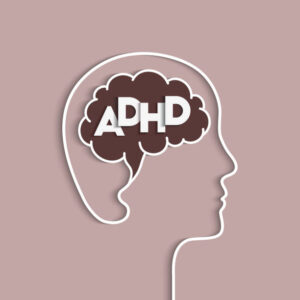Attention-Deficit/Hyperactivity Disorder (ADHD) is a neurodevelopmental condition that affects millions of people worldwide. Characterized by symptoms of inattention, hyperactivity, and impulsivity, ADHD can significantly impact an individual’s daily functioning and quality of life. While various treatment modalities exist, ADHD medication plays a pivotal role in managing the symptoms and enhancing the overall well-being of those affected by this condition.
Understanding ADHD
Typically diagnosed in childhood, ADHD can continue into adulthood. Three subtypes of the disorder exist: predominantly inattentive, predominantly hyperactive-impulsive, and combined presentation. The complexity of ADHD necessitates a comprehensive approach to management, often combining behavioral interventions, educational support, and medication.
Symptoms and Diagnosis
The symptoms of ADHD vary but commonly include difficulty sustaining attention, frequent forgetfulness, fidgeting, and impulsive behavior. Diagnosis involves a thorough assessment, including clinical interviews, behavioral observations, and rating scales. It is crucial to differentiate ADHD from other conditions with similar symptoms to ensure appropriate treatment.
ADHD Medication: An Overview
There are two main categories of ADHD medication: stimulants and non-stimulants. Targeting neurotransmitter activity in the brain, particularly dopamine and norepinephrine, which play key roles in attention and impulse control, is how these medications help manage symptoms.
Stimulant Medications
Stimulant medications are the most commonly prescribed and are considered highly effective for treating ADHD symptoms. We further divide them into two subtypes: methylphenidate-based and amphetamine-based medications.
Methylphenidate-Based Medications
Methylphenidate, known by brand names such as Ritalin and Concerta, works by increasing dopamine and norepinephrine levels in the brain. It is available in various formulations, including immediate-release, sustained-release, and extended-release, allowing for flexible dosing schedules tailored to individual needs.
Amphetamine-Based Medications
Amphetamine-based medications, such as Adderall and Vyvanse, also enhance the activity of dopamine and norepinephrine. These medications come in different formulations to provide consistent symptom control throughout the day. Vyvanse, for instance, is a prodrug that converts to its active form in the body, offering a longer duration of action and a lower potential for abuse.
Non-Stimulant Medications
Non-stimulant medications are an alternative for individuals who do not respond well to stimulants or experience significant side effects. They include atomoxetine, guanfacine, and clonidine.
Atomoxetine
Atomoxetine, marketed as Strattera, is a selective norepinephrine reuptake inhibitor (NRI). Unlike stimulants, it does not have a potential for abuse and provides steady symptom control over 24 hours. Atomoxetine is particularly beneficial for individuals with co-existing anxiety disorders.
Guanfacine and Clonidine
Guanfacine (Intuniv) and clonidine (Kapvay) are alpha-2 adrenergic agonists initially used to treat high blood pressure. Researchers have found them effective in managing ADHD symptoms, particularly hyperactivity and impulsivity. People often use these medications as adjuncts to stimulant therapy or as monotherapy in specific cases.
The advantages of ADHD medication
ADHD medication offers several benefits, making it a cornerstone of ADHD management. The primary advantages include improved attention, reduced hyperactivity, and better impulse control, which collectively enhance academic performance, social interactions, and daily functioning.
Enhanced Academic Performance
Children and adults with ADHD often struggle with academic tasks due to difficulties sustaining attention and completing assignments. ADHD medication helps improve focus, leading to better academic performance and increased productivity. Studies have shown that students on medication exhibit higher test scores and fewer behavioral issues in school.
Improved social interactions
Social relationships can be challenging for individuals with ADHD due to impulsive behavior and difficulty following social cues. Medication helps regulate these behaviors, resulting in more positive social interactions and reduced conflicts with peers, family members, and colleagues.
A better quality of life
Managing ADHD symptoms effectively contributes to an overall improved quality of life. Individuals on ADHD medication often report feeling more in control, less frustrated, and more capable of handling daily responsibilities. This improvement extends to various life domains, including work, family, and personal well-being.
Considerations and Side Effects
While ADHD medication is effective, it is not without potential side effects and considerations. Common side effects of stimulant medications include insomnia, decreased appetite, weight loss, and an increased heart rate. Non-stimulant medications may cause drowsiness, fatigue, and gastrointestinal issues.
Monitoring and adjusting
Regular monitoring by healthcare professionals is essential to ensuring the effectiveness and safety of ADHD medication. Dosage adjustments and medication changes may be necessary to achieve optimal symptom control with minimal side effects. It is important for individuals and caregivers to communicate openly with their healthcare providers about any concerns or observed side effects.
Individualized Treatment
ADHD is a heterogeneous disorder, and what works for one person may not work for another. An individualized treatment approach, considering factors such as age, symptom severity, comorbid conditions, and personal preferences, is crucial for successful management. Combining medication with behavioral interventions, psychoeducation, and lifestyle modifications can yield the best outcomes.
Conclusion
ADHD medication plays a vital role in the comprehensive management of attention-deficit/Hyperactivity disorder. By addressing the core symptoms of inattention, hyperactivity, and impulsivity, these medications significantly improve the daily functioning and quality of life for individuals with ADHD. While the journey to finding the right medication and dosage can be complex, the benefits of effective symptom control are well worth the effort. As research continues to evolve, the future holds promise for even more refined and personalized approaches to ADHD treatment, ensuring that those affected by this condition can lead fulfilling and productive lives.
